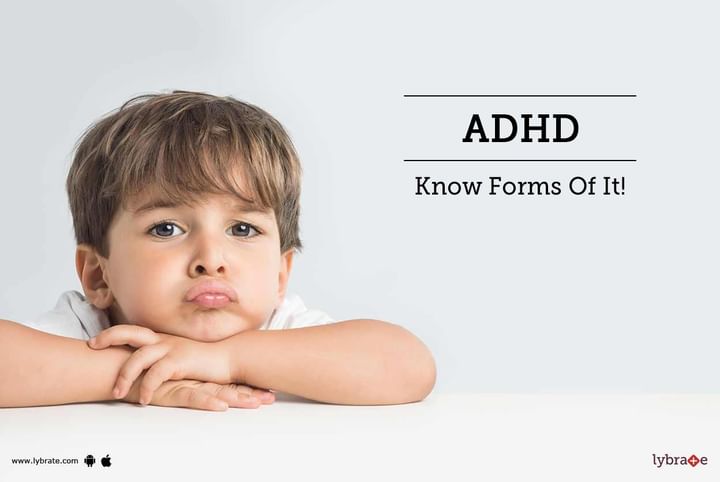ADHD - Know Forms Of It!
ADHD is often diagnosed as a complex neurological disorder which is medically described as a developmental impairment of the self-management functions that are linked to brain operations. It impacts the important functions that are required to assess, plan and carry on with a normal life.
Causes of ADHD
ADHD is generally caused by bad parenting, too much sugar consumption and even playing too many video games. ADHD is a brain-based disorder and brain images have shown that people suffering from ADHD to possess psychological differences in their brains.
There are studies which revealed that a child is four times likely to be diagnosed with ADHD if his/her relative suffers from the same brain disorder, thus, clearly pointing to the genetic factor of carrying ADHD. Exposure to dangerous chemicals such as toxins in food, carpeting and flooring, cleaning products, lawn products and several personal care products can also induce ADHD in a child. When these toxins disrupt the development of the brain, a disorder such as ADHD occurs.
Symptoms of ADHD
There are a number of symptoms of ADHD. There are mainly two categories of symptoms of ADHD. They are:
ADHD - Primarily Inattentive Type of Symptoms
- The person affected often fails to pay close attention to details and are prone to silly mistakes in schoolwork and other tasks.
- They often lack the attention or are unable to retain attention on the task at hand.
- It seems that the affected person is not listening when spoken to directly.
- They do not follow the instructions given to them and fail to complete their tasks and activities.
- They face difficulty in organizing things.
- They avoid engaging in tasks that require constant mental effort.
- They are prone to losing things essential for tasks and activities.
- They are easily distracted by unnecessary and trivial stimuli in their surroundings.
- They are forgetful of their daily activities.
ADHD: Primarily Hyperactive-Impulsive Type of Symptoms
- The affected individual is fidgety and constantly taps their hands, feet or squirms when seated.
- Leaves their seat and stands up on occasions where they are required to be seated.
- They run or climb in certain situations where it is inappropriate and unnecessary.
- They are unable to engage in or play in leisure and quietly.
- They are hyperactive as if they are driven by some kind of motor.
- They talk excessively and unnecessarily on all occasions.
- They will blurt out answers even before the question is finished.
- They are unable to be patient and wait for their own turn to arrive.
- They have a tendency to interrupt and intrude others and take over their privacy.
It is advised to consult a doctor if one or many of these symptoms are noticed in an individual.



+1.svg)
